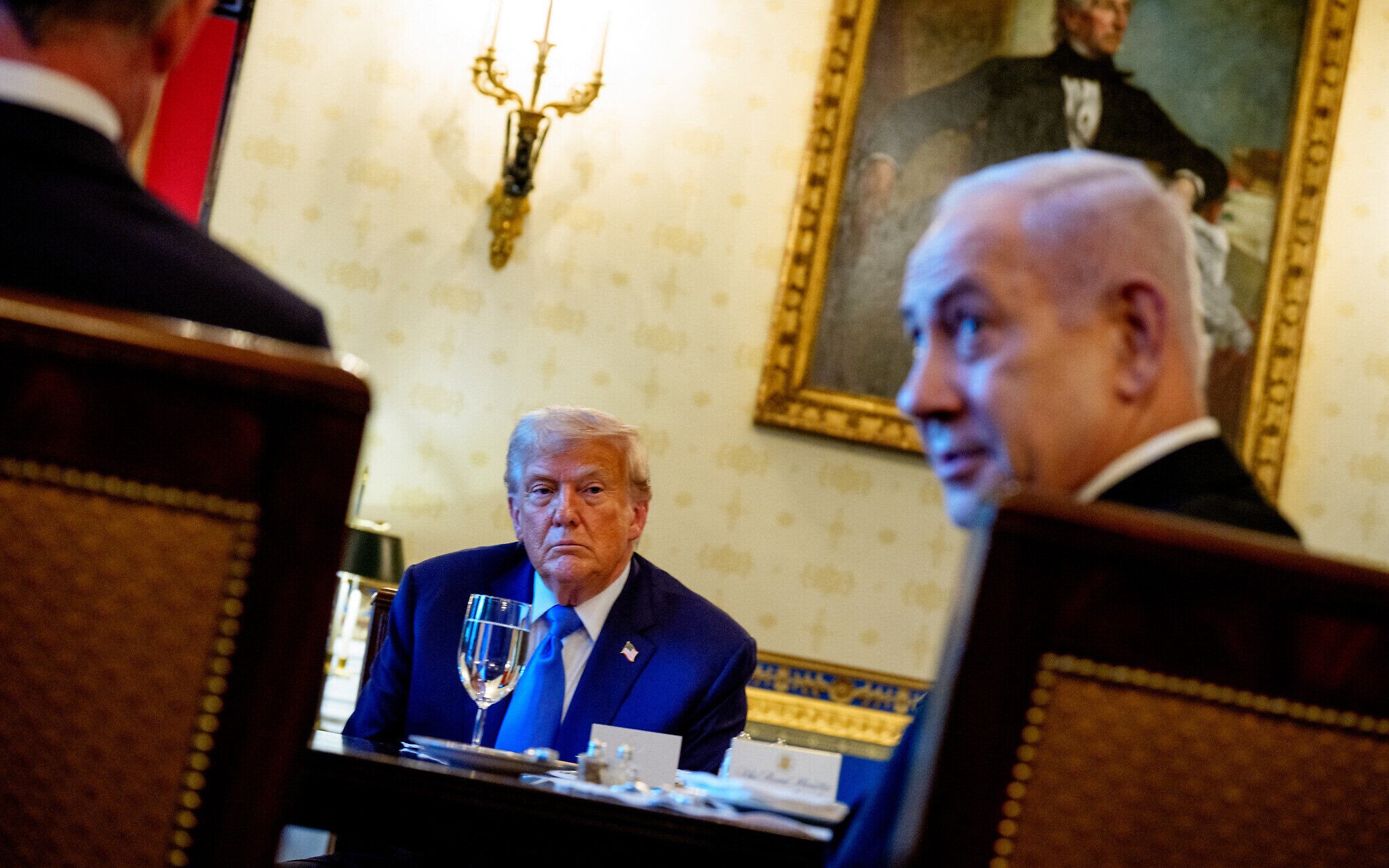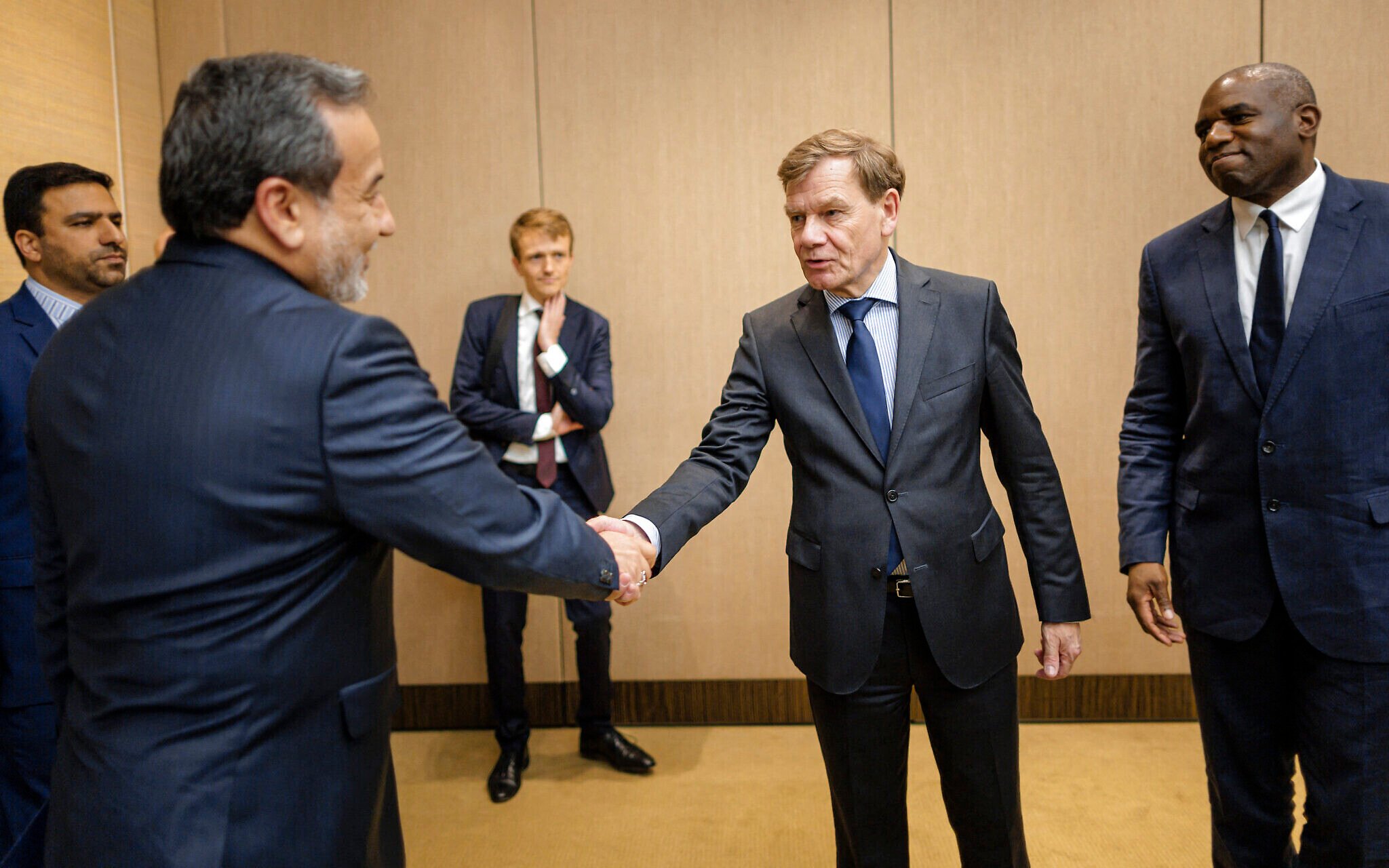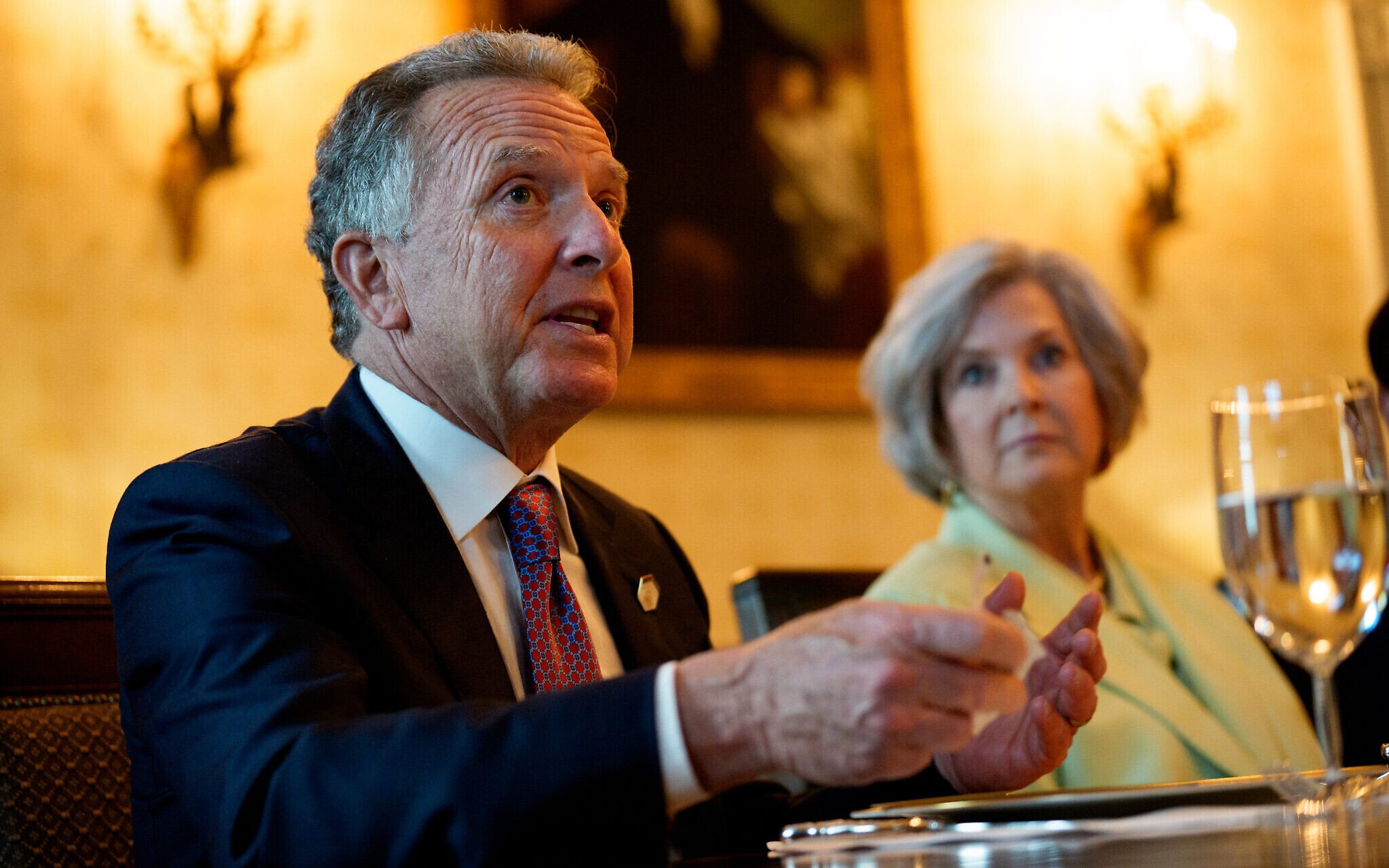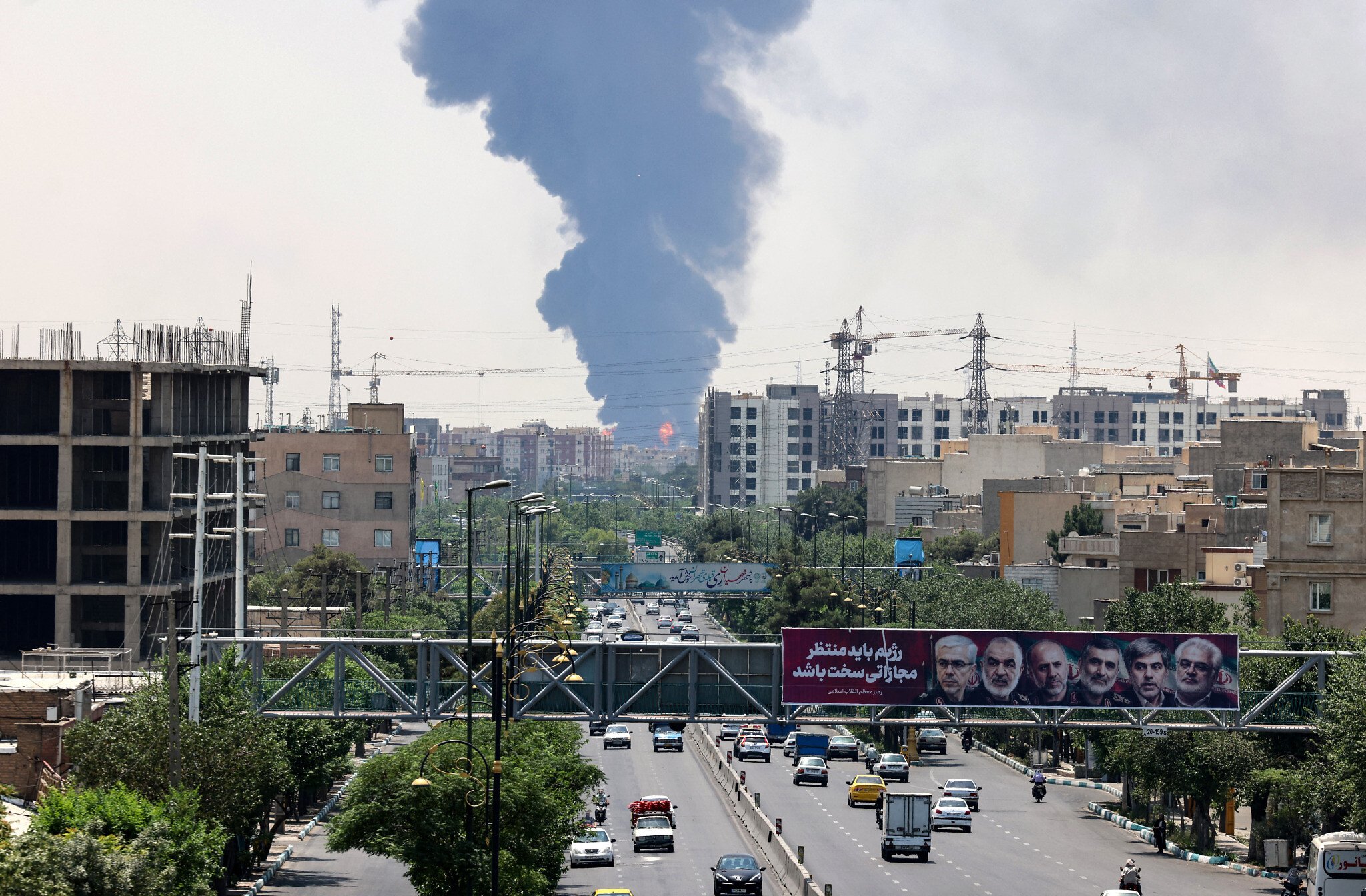


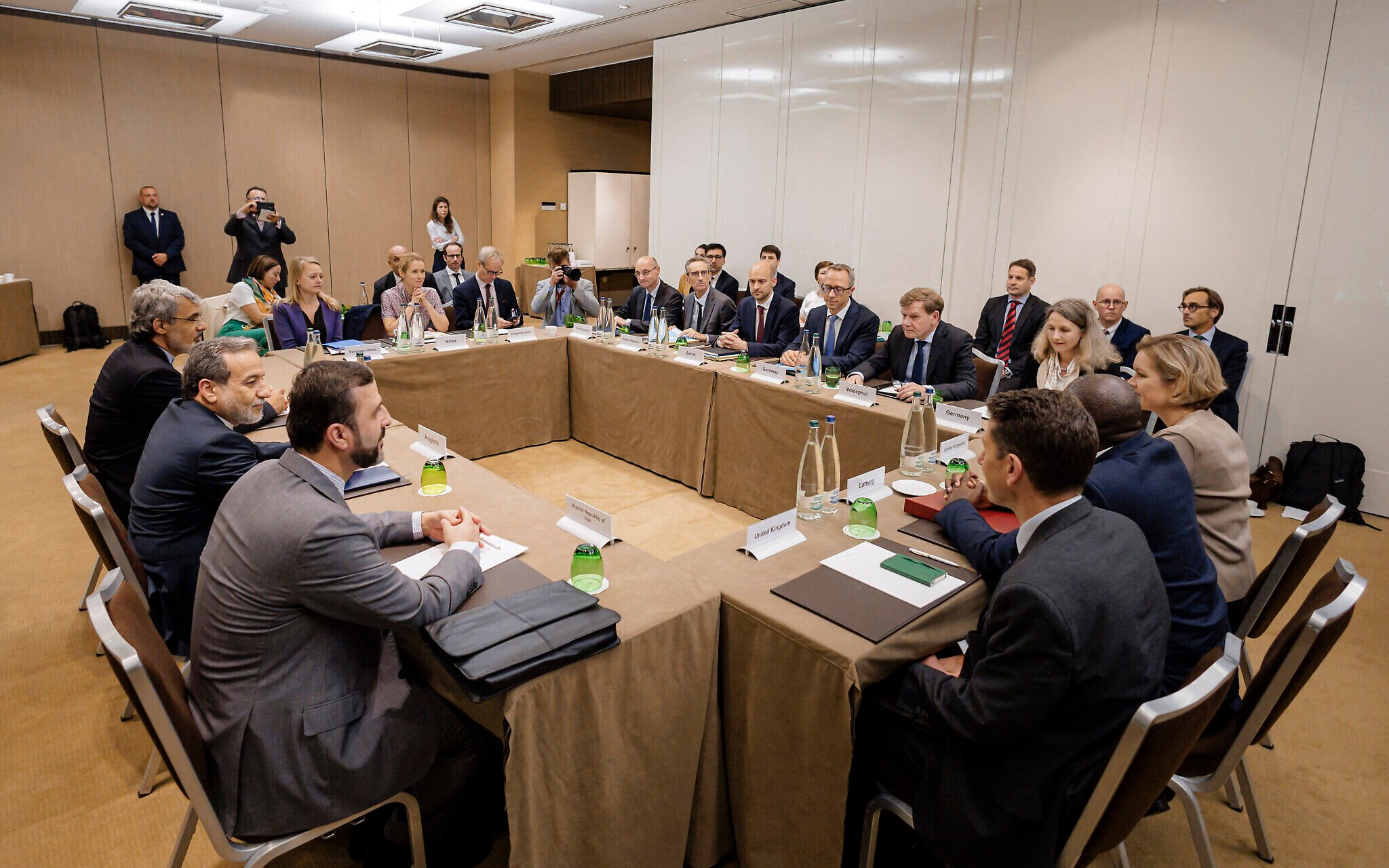
US Secretary of State Marco Rubio and the foreign ministers of France, Germany and the UK agreed in a phone call on Monday to set the end of August as the de facto deadline for reaching a nuclear deal with Iran, Axios reported Tuesday, citing three sources.
If no deal is reached by that deadline, the three European powers plan to trigger the “snapback” mechanism that automatically reimposes all UN Security Council sanctions that were lifted under the 2015 Iran deal, the Joint Comprehensive Plan of Action, the report said.
The news site noted that the process of activating the mechanism would take 30 days, and the US and European powers would want to complete the process before Russia is set to assume the UN Security Council presidency in October.
The report said that some officials in Israel, France, Germany and the UK had been concerned that US President Donald Trump would be against the potential triggering of the snapback sanctions if he believed it could derail the diplomatic process.
Two Israeli officials told Axios that Prime Minister Benjamin Netanyahu raised the matter with Trump, Rubio and special envoy Steve Witkoff when he visited the White House last week.
According to the report, Witkoff has made it clear that any future negotiations between Washington and Tehran should be direct to speed up the process and reduce the chance for misunderstandings.
Two sources said that the European nations were hoping to start reengaging with Tehran on the matter in the coming days.
The sources told Axios that it was hoped that steps taken by Iran could include the resumption of International Atomic Energy Agency (IAEA) monitoring and the removal of what the site said was 400 kg (880 lb) of uranium enriched to 60 percent purity that was at Iran’s nuclear sites. The enrichment of uranium has proved to be a key sticking point in negotiations.
The US, UK, Germany and France were said to be using the snapback warning as a way to pressure Iran into a nuclear deal, and as a tool if diplomatic efforts fail.
However, Tehran has said there is “no legal, moral or political basis” for reimposing sanctions, as Iran was still committed to the 2015 agreement, and that it would withdraw from the Nuclear Non-Proliferation Treaty if the move were made.
Trump said Tuesday that Tehran is hoping to engage in discussions with the United States, but he is in no rush to talk.
“They would like to talk. I’m in no rush to talk because we obliterated their site,” Trump told reporters after his arrival in Washington after a trip to Pittsburgh, referring to US strikes on Iranian nuclear sites last month.
Iran’s parliament said Wednesday that the country should not resume nuclear negotiations with the US until preconditions are met, in a statement published by the Iranian Students’ News Agency.
The report did not say what the preconditions were.
Earlier this week, Iran said that it had “no specific date” for a meeting with the US on its nuclear program, following the 12-day war with Israel that had derailed negotiations.
“For now, no specific date, time, or location has been determined regarding this matter,” said foreign ministry spokesman Esmaeil Baqaei of plans for a meeting between Iran’s top diplomat Abbas Araghchi and Witkoff.
Araghchi and Witkoff started meeting in April, without concluding a deal after five rounds of talks that were the highest-level contact between their two countries since Washington in 2018 abandoned a landmark nuclear agreement.
The Omani-mediated negotiations were halted as Israel launched surprise strikes on the nuclear and ballistic missile facilities of Iran on June 13, starting a war which the United States later joined.
Israel said its sweeping assault was necessary to prevent the Islamic Republic from realizing its avowed plan to destroy Israel.
Iran has consistently denied seeking to acquire nuclear weapons. However, it enriched uranium to levels that have no peaceful application, obstructed international inspectors from checking its nuclear facilities, and expanded its ballistic missile capabilities. Israel said Iran had recently taken steps toward nuclear weaponization.
The United States launched its own set of strikes against Iran’s nuclear program on June 22, hitting the uranium enrichment facility at Fordo, in Qom province south of Tehran, as well as nuclear sites in Isfahan and Natanz.
The extent of the damage from the strikes remains unknown, and Baqaei said it was “still under investigation.”
Iran retaliated against Israel’s strikes by launching over 500 ballistic missiles and around 1,100 drones at Israel. The attacks killed 29 people and wounded over 3,000 in Israel, according to health officials and hospitals. Iran also attacked a US base in Qatar in retaliation for Washington’s strikes.

